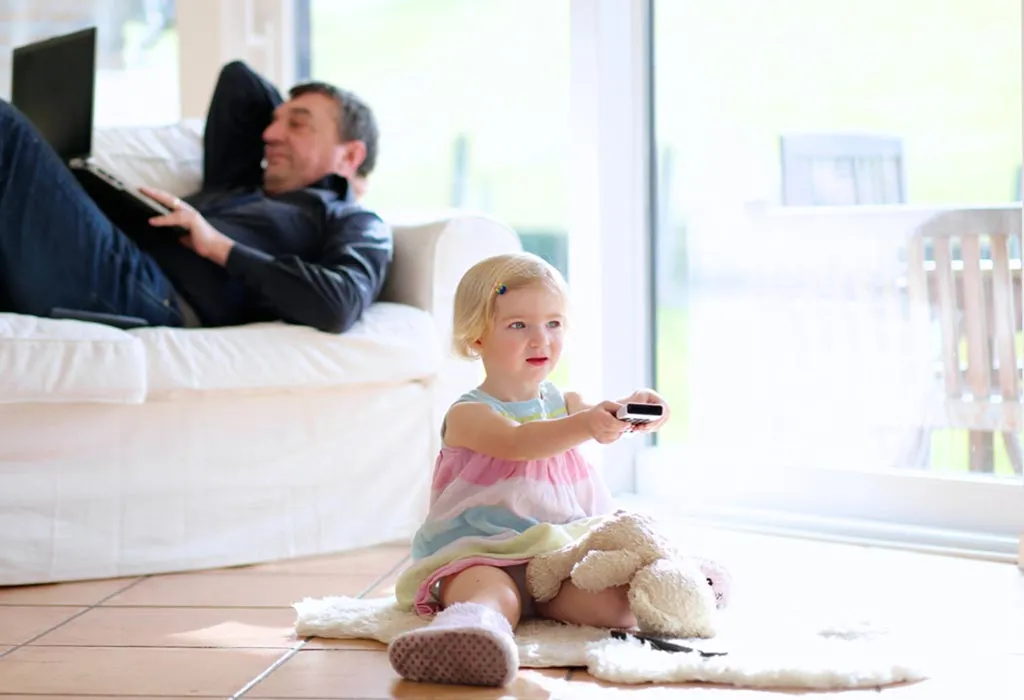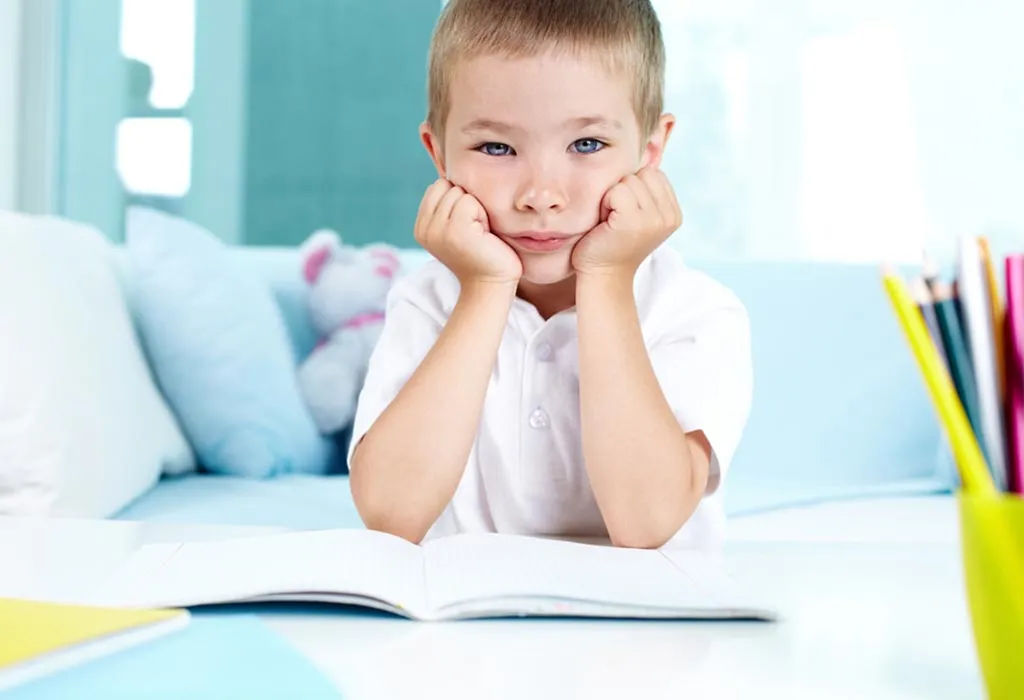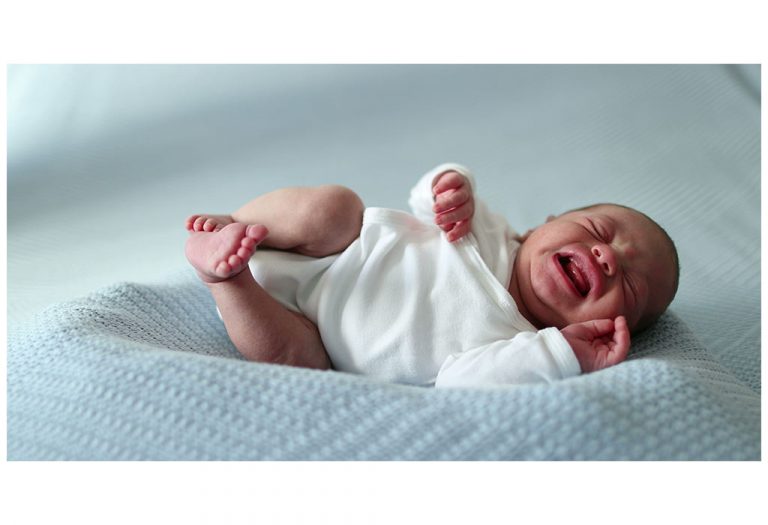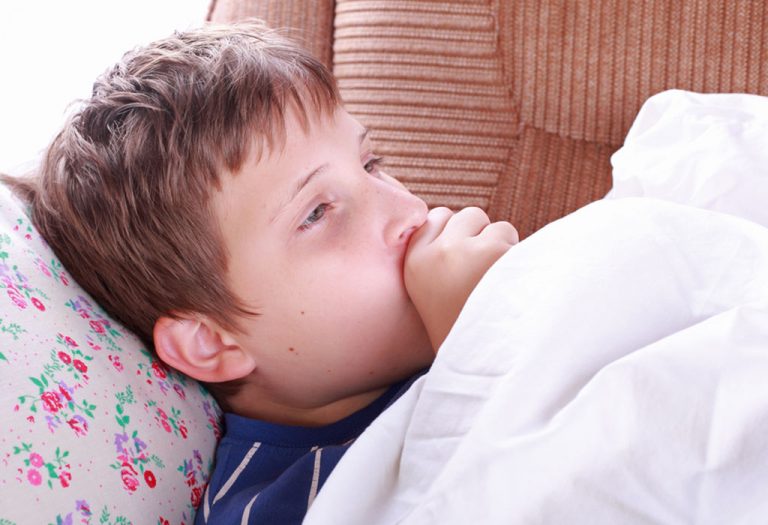Permissive Parenting Style – Characteristics, Effects & more

If your parenting style is categorized by high responsiveness and low demands, then you may be practising a permissive parenting style. This approach is often characterized by a nurturing and loving environment where rules and expectations are minimal or flexible. While this style can foster a strong emotional bond with your child, it may sometimes lead to challenges in setting boundaries and promoting self-discipline. Know everything you need to understand about permissive parenting style, its potential effects on your child’s development, and how you can effectively manage your parenting style for the benefit of your child’s overall well-being and future success.
What Is Permissive Parenting Style?
A common question asked is: What is the definition of permissive parenting? Permissive parenting is also known as indulgent parenting. Parents adopt a very friendly parenting approach in this kind of parenting style, and they often do not expect their children to act or behave in a mature manner. The parents love to nurture the personality, talents, and needs of their kids without being demanding and exercising extremely low self-regulation and discipline. Such parents are very relaxed and lenient with their children and do not keep a tab on their every action or move.
Why Some Parents Follow Permissive Parenting Style
Some parents who have been raised by very controlling or authoritative parents, or by parents who adopted helicopter parenting style may adopt or practice exactly the opposite. They may adopt a parenting style that is very relaxed and easy on kids.
There are some parents who adopt permissive parenting because they want to be friends with their children instead of being a parent figure. They may feel that exercising control and discipline may harm their relationship with their children.
On the other hand, some parents may adopt indulgent parenting style just because they are themselves too relaxed in life. They may not be paying heed to any structured or disciplined kind of parenting and usually adopt a haphazard way of parenting. They may not like imposing any kind of rules or restrictions on their kids, as it may hamper their laid back attitude, and thus let their kids behave the way they want to.
What Are the Characteristics of Indulgent Parenting Style?
If you are wondering how you will be able to understand if you are practising an indulgent parenting style, the following characteristics may help you understand better:
1. Lacks Structure
This kind of parenting style lacks structure, and the parents usually do not follow any order or schedule.
2. More of a Friend Than a Parent
The indulgent parenting style is characterized by parents having a very friendly attitude towards their children. The parents do not behave like parents; on the contrary, they behave more like friends with their kids.
3. No Control
The permissive parenting style involves minimal or no parental control over the children.
4. Avoids Conflict
The parents have few or no confrontations or conflicts with their children. They have a laid-back attitude towards parenting.
5. Excess Freedom
This parenting style involves giving too much freedom to the children and not holding the children responsible for their actions.
6. Parents Want to Be Liked
The parents want to be liked and adored by their kids in this kind of parenting style, and thus, they agree to whatever their kids say or demand. They despise upsetting their children.
What Are the Effects of Permissive Parenting on Children?
The impact of permissive parenting can be observed in several aspects of a child’s development, influencing their behaviour, emotions, and decision-making. If you have been adopting a lenient style of parenting with your children, you may notice the following effects of permissive parenting on your children:
Positive Effects
Permissive parenting can have some advantages, particularly in fostering emotional closeness and creativity. Here are a few pros of permissive parenting:
1. Strong Parent-Child Bond
The permissive approach fosters a close relationship between parents and children. Since permissive parents are nurturing and empathetic, children feel supported and understood, strengthening trust and emotional connection. This bond can make children more open to sharing their thoughts and feelings with their parents.
2. Enhanced Creativity
Children raised in a permissive environment have the freedom to explore their interests without fear of judgment or restriction. This uninhibited space encourages them to think outside the box, experiment, and develop innovative ideas, often leading to enhanced creativity and problem-solving skills.
3. Reduced Pressure
Unlike authoritative or authoritarian parenting styles, permissive parenting creates a low-pressure environment. Children are not burdened by rigid expectations or high demands, which can reduce stress and allow them to pursue their goals at their own pace.
4. Better Social Skills
Permissive parents’ emphasis on empathy and understanding helps children develop a strong sense of compassion and interpersonal skills. These children often feel comfortable interacting with others and may form meaningful relationships with peers.
5. Encouraged Self-Expression
Permissive parenting allows children to freely express their thoughts, opinions, and emotions. This practice helps them feel valued and promotes self-confidence as they grow up, knowing their ideas matter and are heard.
Negative Effects
While permissive parenting has its positives, it can also lead to significant drawbacks, particularly regarding discipline and responsibility.
1. Behavioural Problems
Children in permissive households often develop behavioural issues, such as irresponsibility and difficulty accepting faults. They may also display a bullying nature, ignoring rules and showing no fear of consequences or punishments. Additionally, their behaviour may be marked by an impulsive attitude, rash decisions and a lack of accountability for their actions.
2. Poor Academic Performance
The permissive parenting style often involves little to no academic expectations. Without structure, children may lack the discipline to focus on their studies or set academic goals. This can result in poor grades and an overall disinterest in learning, as they are not encouraged to value educational achievements.
3. Emotional Inadequacy
Overindulgence can lead to emotional immaturity. Permissive parents often shield their children from challenges or discomfort, creating a “happy bubble.” While this may seem beneficial in the short term, it hampers the child’s ability to cope with stress, frustration, or failure, leaving them emotionally unequipped to handle real-life situations.
4. Inability to Manage Time and Habits
A permissive household often lacks structure and discipline, making it difficult for children to develop healthy habits. They may engage in excessive activities, such as watching TV for long hours, overeating junk food, or playing video games excessively. These habits can lead to issues like obesity, poor time management, and difficulty balancing responsibilities as they grow older.
5. More Prone to Substance Use
Children raised with few boundaries or rules may engage in risky behaviours, such as substance abuse, at a higher rate. The lack of consequences and discipline in their upbringing can make them less cautious about experimenting with drugs, alcohol, or other misconduct, especially as they seek validation or freedom during adolescence.
6. Poor Decision-Making Capabilities
As parents do not impose discipline and any kind of rules on their children, the children become dull and lack the apt decision-making and problem-solving capabilities.
These were some of the outcomes of adopting permissive parenting style, but there are many other problems that may arise because of permissive parenting style.
Some Permissive Parenting Examples
We will discuss some permissive parenting examples for you to understand this parenting style in a better way:
- You do not follow or have a specific schedule for your kid’s playing, studying, eating or sleeping. You just go with the flow and do whatever your child desires to do. If he wishes to be up till late at night even when he has to wake up early the next day for school, you do not tell him to go to bed. This is because you do not wish to upset your kid.
- You are at a supermarket, and your kid insists on having a candy bar. You allow him to have it in spite of the fact that he already had three candy bars during the day. But you buy him one more candy bar and let him have it.
- You ask your kid to do something but at his own convenience. For example, you asked him to wind up his toys after playing, but only if he is not feeling tired after playing.
- Your teenage kid has his exams around the corner, but he has to attend three parties in a row. You not only allow him to go, but you also tell him to have a gala time at the party by not worrying about the upcoming exams. Your kid’s leisure becomes more important than his studies.
- You want your son to have a phone so that you can get in touch when he’s away. But your son insists on buying the new and expensive PlayStation. Although you strongly feel that your kid needs a phone rather than splurging on the PlayStation, you succumb to your kid’s unreasonable demands and buy him a PlayStation.
These are some of the examples of permissive parenting.
Guidelines to Follow in Permissive Parenting
Improving or adopting better parenting skills will assist you in dealing with your children in the right way, and they will become better people. You may adopt the following measures or guidelines in your permissive parenting style to avail optimum benefits out of it:
1. Try to Be Consistent and Firm
Though you may find it challenging to be firm and consistent with your kid, adopt this approach gradually and in a loving manner with your child. You can tell your child the importance and value of adhering to rules and regulations and also about the consequences or ill-effects of not following the rules. The proper reasoning for simple things will go a long way and help your parenting style.
2. Explain Family and Ground Rules
It is very important that you inculcate the importance of following rules in your kid. Your kid has to know that there is no easy way to get things; he has to follow the rules and stick to them. It is also important that you let your kid know that you expect him to follow all the family rules. Refrain from exercising any kind of leverage over the rules. Children learn by example, and thus, the best way to teach them is by doing it yourself.
3. Explain the Consequences
Not only kids but we also find it difficult to keep up with the rules and regulations. But it is important for your kid to understand that in the absence of rules, life would be nothing but a haphazard mess. You have to explain to your kid the repercussions of not following rules. It is important that in order to have your rules in place, you tell your kid the consequences he may have to bear in case he breaks the rules. You may set some simple consequences or punishments for breaking small rules and, at the same time, serious consequences for serious faults.
4. Reward When Required
We all like a pat on the back whenever we do something remarkable. Therefore, it is important that you encourage, praise and reward your child as and when it is required instead of rewarding or spoiling your kid all the time. Unnecessary rewards not only go unnoticed, but they are also not valued by your kid. Rewarding your kid at the right time for the right thing not only makes your kid happier but also helps boost his motivation level and morale.
FAQs
1. Can permissive parenting affect a child’s long-term career success?
Yes, permissive parenting can impact a child’s career success. The lack of discipline and responsibility often associated with this parenting style may make it difficult for children to develop the self-motivation and work ethic required in professional settings. They may struggle with meeting deadlines, adhering to rules, or taking constructive criticism in their careers.
2. Does permissive parenting make children more prone to entitlement?
Yes, permissive parenting can sometimes lead to a sense of entitlement in children. When parents frequently indulge their child’s demands without setting limits, children may come to expect similar treatment in all areas of life, which can create challenges in social and professional relationships where compromises are necessary.
This was all about indulgent or permissive parenting. Make your children responsible, and let them understand the importance of following rules in life, so they are better prepared to face bigger challenges in life, and turn out to be responsible citizens.
References/Resources:
1. Power. T; Parenting Dimensions and Styles: A Brief History and Recommendations for Future Research (Childhood Obesity); Mary Ann Liebert, Inc., publishers; https://www.liebertpub.com/doi/10.1089/chi.2013.0034; August 2013
2. Masud. S, Mufarrih. S, Qureshi. N, Khan. F, et al.; Academic Performance in Adolescent Students: The Role of Parenting Styles and Socio-Demographic Factors – A Cross-Sectional Study From Peshawar, Pakistan (Frontiers in Psychology); Frontiers; https://www.frontiersin.org/journals/psychology/articles/10.3389/fpsyg.2019.02497/full; November 2019
3. Berge. J, Sundell. K, Öjehagen. A, Håkansson. A; Role of parenting styles in adolescent substance use: results from a Swedish longitudinal cohort study; BMJ Journals; https://bmjopen.bmj.com/content/6/1/e008979
4. Ehrenreich. S, Beron. K, Brinkley. D, Underwood. M; Family predictors of continuity and change in social and physical aggression from ages 9 to 18 (Aggressive Behavior); Wiley Online Library; https://onlinelibrary.wiley.com/doi/10.1002/ab.21535; May 2014
5. Howe. AS, Heath. A, Lawrence. J, Galland. B, Gray. A, et al.; Parenting style and family type, but not child temperament, are associated with television viewing time in children at two years of age; PLOS ONE; https://journals.plos.org/plosone/article?id=10.1371/journal.pone.0188558; December 2017
6. Calafat. A, Fernando. G, Juan. M, Becona. E, Fernández-Hermida. J; Which parenting style is more protective against adolescent substance use? Evidence within the European context (Drug and Alcohol Dependence); Science Direct; https://www.sciencedirect.com/science/article/abs/pii/S0376871614007765; May 2014
7. Garcia. F, Serra. E, Garcia. O, et al.; A Third Emerging Stage for the Current Digital Society? Optimal Parenting Styles in Spain, the United States, Germany, and Brazil; MDPI; https://www.mdpi.com/1660-4601/16/13/2333; July 2019
Also Read:
Slow Parenting Style
Peaceful Parenting Style
Snowplow Parenting Style and Effects on Kids
Uninvolved Parenting Style and Effects on Children
The Different Types of Parenting Styles and Their Impact on Kids
Was This Article Helpful?
Parenting is a huge responsibility, for you as a caregiver, but also for us as a parenting content platform. We understand that and take our responsibility of creating credible content seriously. FirstCry Parenting articles are written and published only after extensive research using factually sound references to deliver quality content that is accurate, validated by experts, and completely reliable. To understand how we go about creating content that is credible, read our editorial policy here.
















.svg)


















